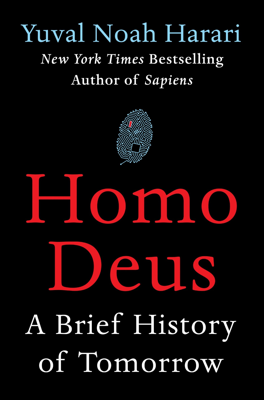Summary
In "Homo Deus: A Brief History of Tomorrow," Yuval Noah Harari explores the future trajectories of humanity, building on the foundations of his previous work which examined our past. Harari identifies that humanity has largely overcome the historical challenges of famine, plague, and war and is now focused on achieving immortality, happiness, and god-like powers. He suggests that through advancements in biotechnology and artificial intelligence, humans may significantly extend their lifespans, improve quality of life, and increase their control over life itself, possibly leading to the creation of "Homo Deus," a new human with godlike capabilities.
The book delves into the implications of these advancements, raising crucial ethical and philosophical questions about identity, consciousness, and the value of human experience. Harari discusses the concept of "intersubjective realities," societal constructs like religion and capitalism, which dictate large-scale human cooperation and are seeing shifts due to technological progress. These constructs may evolve or become obsolete as techno-humanism and data religions, where technology rather than traditional religious narratives guide human destiny, take center stage.
Harari also scrutinizes the changing dynamics between humans and both their environment and technology. He predicts that AI and robotics could eventually surpass human intelligence and usefulness, potentially creating a class of economically and politically redundant humans. Furthermore, new technologies might lead to the enhancement of a select group of humans, resulting in unprecedented inequalities.
"Homo Deus" challenges readers to reconsider the relationships between authority, responsibility, and the deepening integration of technology into daily life. It discusses the potentially diminishing role of individual human experiences and choices in a future dominated by data-driven decision-making and technological oligarchy. Harari leaves us pondering the ethical dimensions of these developments and the future role of humanity in a world where data and algorithms might dictate societal norms and values.
